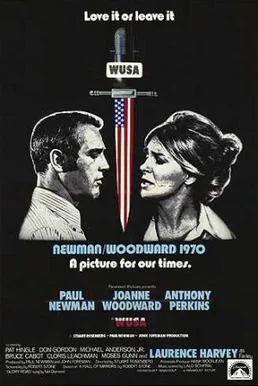WUSA (1970)
Director: Stuart Rosenberg
The idea of critical race theory came about because of this observation. The constitution enshrines that everyone is equal in the eye of the law and is innocent unless proven otherwise. Day in and day out, the disparity between different groups is apparent. Disproportionately high numbers of people of a particular group occupy the prisons and fill up the low socioeconomic strata of society. Proponents of critical theory insist that they are victims of systemic discrimination in society. Even though the law paints an image of fairness, in reality, the system is biased. The disadvantaged people will always stay disadvantaged. The system makes sure of that.
The perception of the people is easily swayed. The public can easily be zombified to tell a particular narrative with all the communication tools at the disposal of the powers that be. This idea was initially mooted by the left-leaning Frankfurt School and perfected by Hitler's propaganda Minister, Joseph Goebbels. The widespread of social media and the rampant algorithmic manipulation in creating echo chambers are proof of this.
This 1971 film tells the narrative above in its own way. The setting is somewhat different, though. Set in the 70s Confederate town of New Orleans, it speaks of a meeting of a radio announcer (Reinhart, Paul Newman), a social worker (Rainey, Anthony Perkins), a preacher and a job-seeking recently widowed 30-something lady (Geraldine, Joanne Woodward). Rainey discovers that the research results handed to him are all fake. The powers that be in town have no interest in improving the state of the downtrodden. The white supremacists in town are pretty happy with the status quo. The radio station helps to paint a rosy picture of the bleak situation of the poor. Rainey confronts the radio owner but is just turned away. As a radio DJ, Reinhart knows very well that his job involves spreading false information and carries on anyway for the money. The preacher in it to escape his demons and sway towards where the power lies. And Geraldine is confused about the whole thing, especially so after having her husband gunned down by one supremacist.
Things take a turn for the worse when the head of the radio station sponsors a white supremacy rally. Pandemonium struck as Rainey tried to assassinate the radio station owner during a performance as black militants demonstrated outside the venue.
Half a century after this movie, we still debate the same issues. We talk about equality, equity, justice and fairness but agree on which is what. When we do not have anything, we think communism and socialism are the way forward. When we have attained a certain comfort in life, when our hard work pays off, we do not want to part with our hard-earned money. We tend to think capitalism is best. If we can pull ourselves by our own bootstraps, why can't others?












